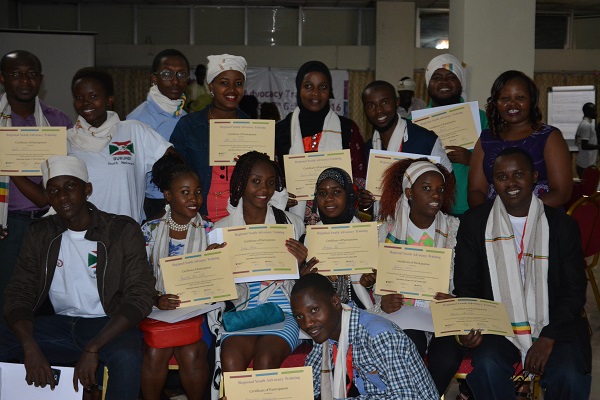
For decades, countries from all corners of the world have grappled with issues facing what is undeniably one of the most vulnerable group of people on this planet-the youth. According to a recent survey by Population Reference Bureau, the population of the youth – people aged between 15 and 24 – stands at about 1.2 billion. This figure alone puts this group of people at the top of to-do list for leaders and policy makers from all around the world. Pertinent to most nations, has been addressing the issue of skills and employment among the youth. The big question thus is, have we made any progress in addressing these issues?
There is therefore the reason to have in place policies and programs to improve their wellbeing and provide them a conducive environment to better contribute to the world. This should be particularly so because of some gruesome facts about the youth. Advocates for youth report that 85 percent of the World’s population of youth live in developing countries, 238 million youth live in extreme poverty, that is they live on less than 1 dollar a day. The group further finds that about 133 million youth in the world are illiterate and that 41 percent of the world’s unemployed are the youth.
However, tremendous progress has been made across the world and at center stage are the Sustainable Development Goals (SDGs) which represent a worldwide commitment to quality education and decent work and Economic Growth. Progress on many of the goals could be achieved by deliberately targeting our efforts towards the youth through provision of quality education, offering employment opportunities and emphasizing on acquisition of a variety of skills. A report published by World Bank in 2007 on the role of youth and skills acknowledged the input of policymakers in creating strategies that amplified the role played by skills in transition to work. The report further sheds light on gains made through Technical and Vocational Education and Training (TVET) since its inception and adoption by developing countries from the early 60s. Support for TVET gained momentum in the early 60s following the assumption that the program would equip students with necessary skills to gain meaningful employment once out of school and also increase their trainability index once in the labor force.
Established in 2013, the office of the UN Secretary-General’s envoy on Youth ensures youth are integrated into activities to achieve the SDGs. The UNDP recognizes that over a third of the 169 SDG targets highlight the role of young people and the importance of their empowerment, participation and wellbeing.
Provision of quality education, impacting of skills and provision of employment to the youth has enabled them become innovators where they offer news ideas and alternative solutions not only to issues affecting them but also the entire society. Key in this has been the advent of modern technology in which the youth have been and continue to use to be the drivers of change. Acquisition of Education has enabled the youth become critical thinkers where they have the capacity to identify and challenge existing power structures and barriers to change. Youth are better communicators of the agenda and programs in their societies to their peers and the world. This, they do better if educated and given the capacity to do it to communicate.
Youth are undoubtedly critical drivers of change across the globe. When young people are empowered with the knowledge of their rights and supported to develop leadership skills, they can drive change in their communities and countries.
As we mark this year’s World Youth Skills Day, a day set aside by the United Nations General Assembly to raise awareness on the importance of investing in youth skills development, as End Child Poverty it’s important we acknowledge and join in the remarkable progress that has been made while aiming to perform even better to ensure more youth are educated, skilled and in meaningful employment. While aiming to improve, our efforts must be geared towards achieving the SDGs since they present a universal agenda for transforming the world. Governments, civil society, religious organizations and other actors should recognize the value of collaborating with young people as partners by providing them with quality education which will offer them the relevant skills which then will propel them into meaningful employment. By extension, End Child Poverty shall be better positioned to achieve most of the 17 SDGs and related targets.
Read more on this report on youths engagement in civic duties in addressing pertinent issues affecting them.


